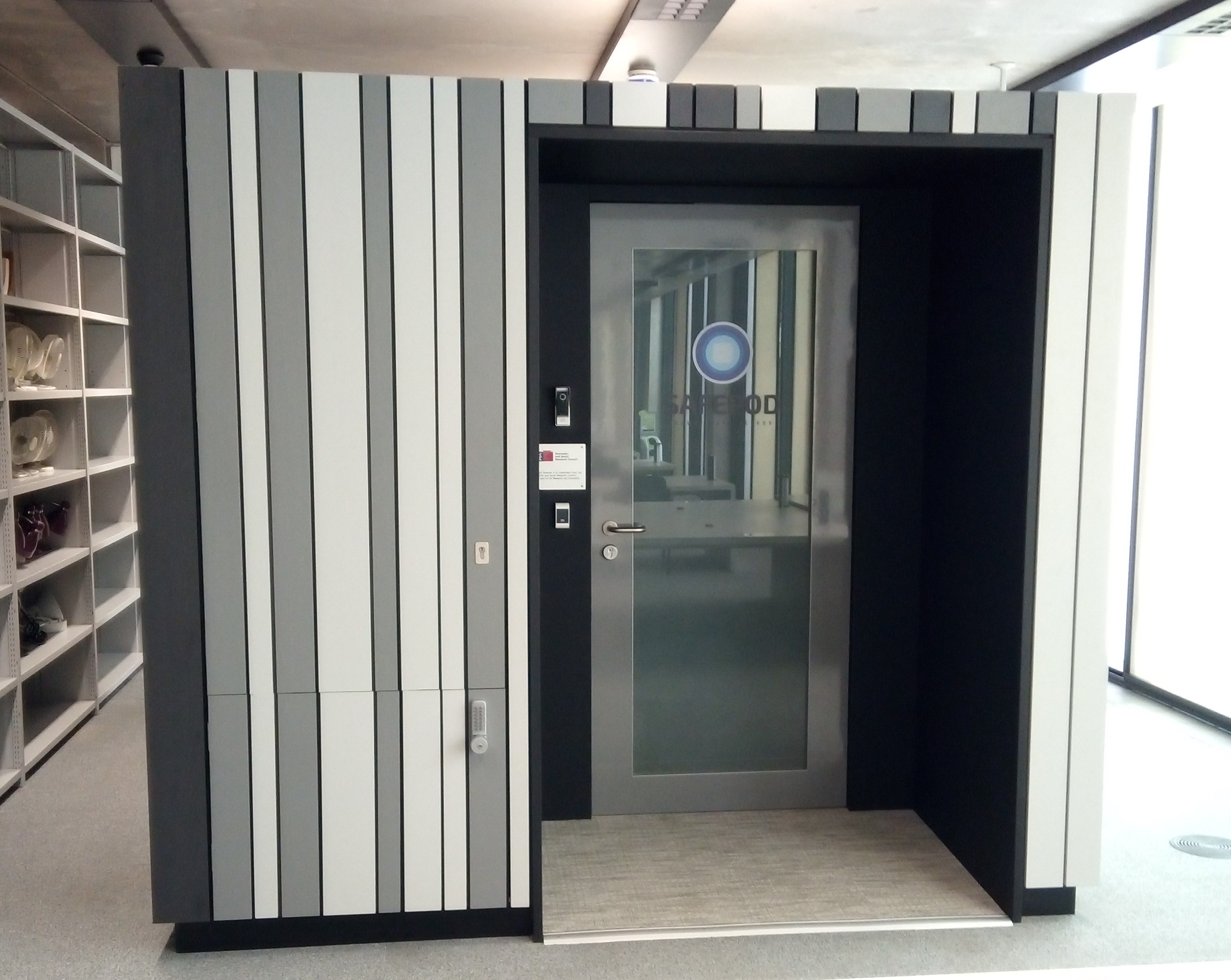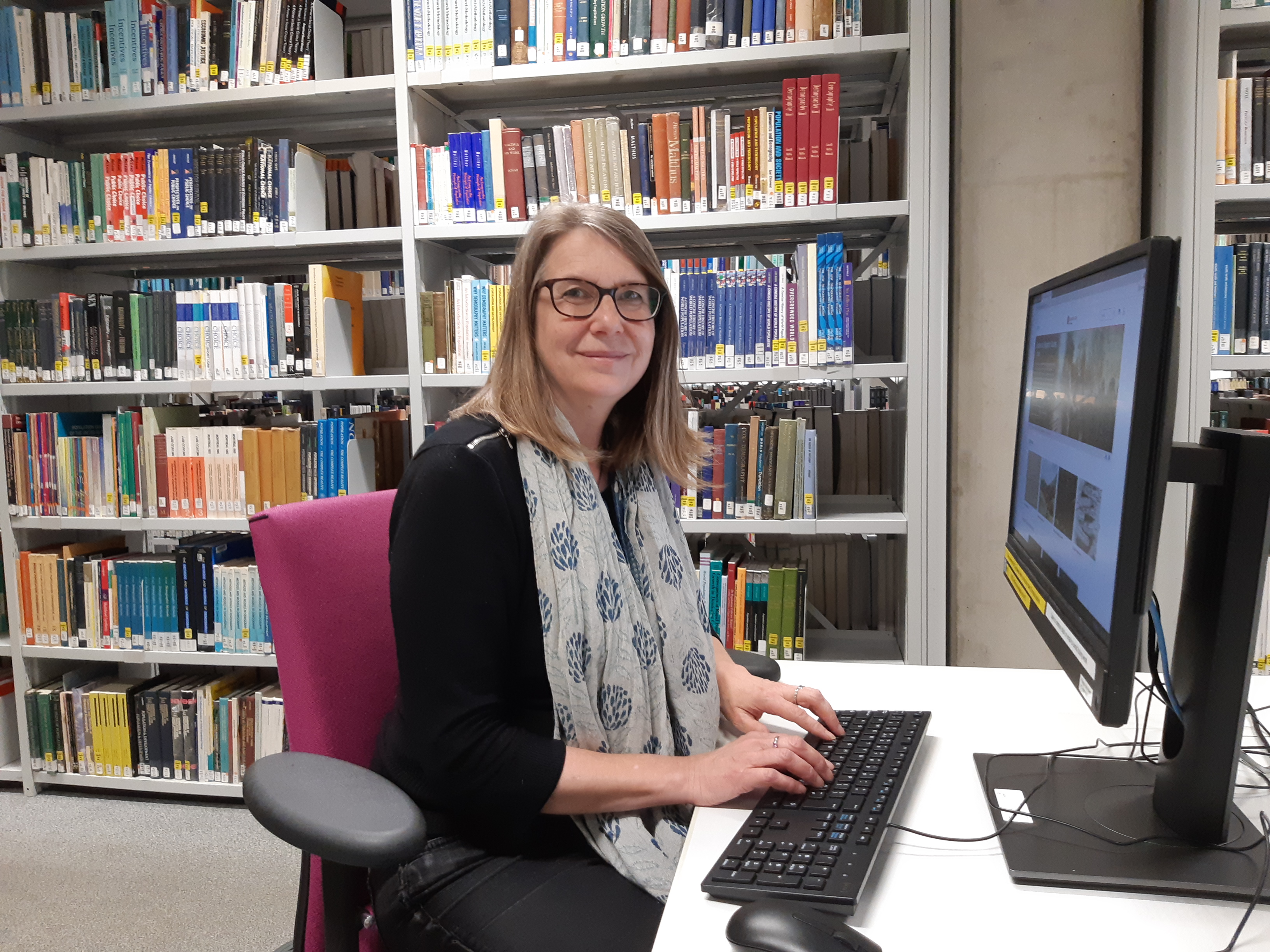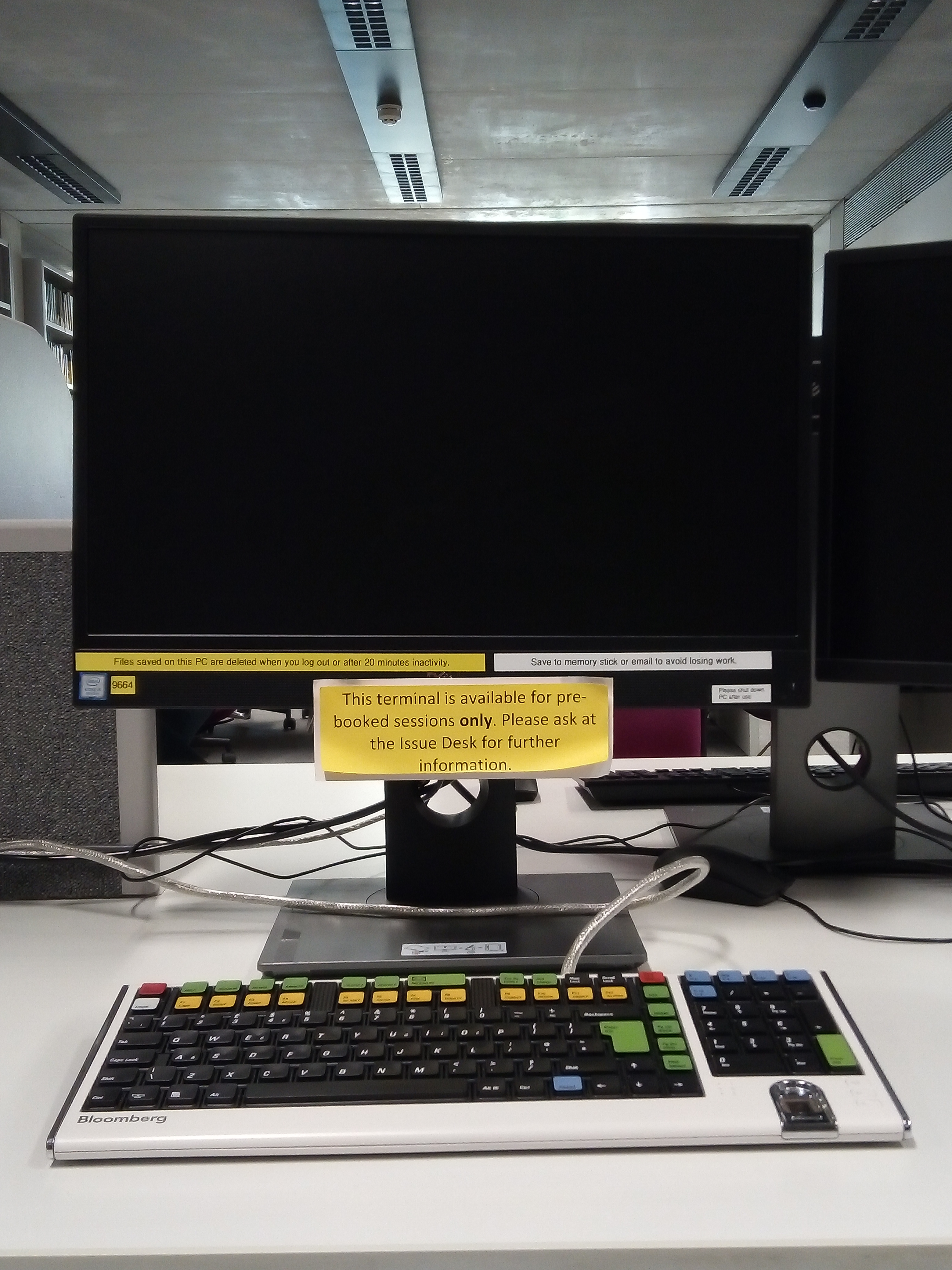To support social scientists and others who need to gather and handle data, the SSL offers a Data Area. This provides access to PCs with specialized and restricted-licence data software. Any reader may use these PCs (except the Bloomberg PC).

Bloomberg Professional
Bloomberg Professional is a leading source of detailed market data, news and analytics that is used in trading markets and financial institutions globally. Content includes current and historical financial data on currencies and commodities, individual equities, stock market indices, fixed-income securities, and futures for both international and domestic markets. The service also provides access to company profiles and financial statements, forecasts, news on financial markets, and audio and video interviews on business and finance.
Bloomberg Professional can only be used by current University members and for academic non-commercial research.
You must apply for access and book your first use by emailing the Data Librarian, John Southall. To apply for access, download the Bloomberg application form (PDF, 162kb).
Exceptionally, clearance can be given by the Reader Services Librarian or the Digital Services Librarian. You can book subsequent sessions at the issue desk or by emailing ssl@bodleian.ox.ac.uk, subject to the availability of the Bloomberg PC (see calendar of existing bookings).
Readers can use the Bloomberg PC with the specialist Bloomberg keyboard or borrow a standard keyboard from the issue desk. Once logged in, you can receive help with using the system from Bloomberg via instant messaging. Guides are available in the SSL Data Area or use the following:
Refinitiv Eikon
Refinitiv Eikon allows for economic research and strategy development with macroeconomic analysis through access to the accounts data and equity data for global companies and stock indices. The content spans over 40 years and contains worldwide economic data and futures, bonds and commodities figures. More information is available on SOLO and directly from Refinitiv along with their training materials. Guides are available in the SSL Data Area or consult:
The software is installed on one of the SSL Data Area PCs (see our PDF map). Access is password protected and restricted to current University members. Please ask at the issue desk to be logged in by a member of library staff.
NVivo
The NVivo software is designed to organize, analyze and find insights in qualitative data. We currently have NVivo 12 on our reader PCs. The software is installed on 5 SSL PCs (see our map). Access is available to all library readers with a Bodleian Libraries login.
More information about NVivo is available on SOLO.
Guidance is available on the getting started section of the NVivo website. The IT Learning Centre offer a range of resources for NVivo and NVivo can be purchased for personal use through IT Services.
SPSS
This data analysis software allows for the editing and analysis of all types of quantitative data, whether structured data or relational databases. It works with all common file formats and can be used for formulaic analysis or graphing data. More information is available on SOLO and on the SPSS website. Guides are available in the SSL Data Area or you can consult the SPSS Introductory Guide (PDF, 519 KB). IT services offer SPSS training as part of their course catalog and SPSS can be purchased for personal use through the University store.
The software is installed on 5 PCs (see our PDF map). Access is restricted to current University members. A password is required, so ask SSL issue desk staff to log you in.
SafePod

The SafePod Network (SPN) is a major new research innovation to provide and manage a network of standardised safe settings (SafePods) across the UK for data that requires secure access for research purposes. A SafePod provides the physical security and controls for a researcher to access such data and includes a door control access system, CCTV, wheelchair accessibility and a height adjustable desk with monitor.
All SafePods operate under the same policies and procedures and provide researchers, once accredited, with access to datasets from participating data centres and archives. This includes:
Booking the University of Oxford SafePod
The University of Oxford SafePod is in the Social Science Library and can be booked and used by researchers internal and external to the University. SafePod bookings must be made from the SPN website. Bookings cannot be made at the Social Science Library.
The University of Oxford SafePod is available 10am–4pm on weekdays, excluding periods when the Social Science Library is closed.
More information
For general enquiries about the SafePod Network, contact 01334 463901 or email safepodnetwork@st-andrews.ac.uk.

















